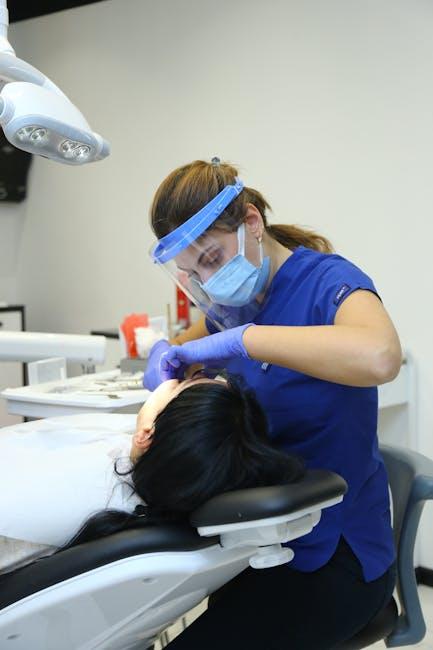
Stepping Away from the Chair: Finding Direction in Your Dental Career – Dentistry UK
Explore new directions within dentistry beyond clinical practice and discover fulfilling career paths suited for dental professionals in the UK.
Introduction
Working as a dentist in the United Kingdom traditionally involves spending many hours sitting in the dental chair, providing patient care and clinical treatment. However, not every dental professional envisions a lifelong career confined solely to chairside dentistry. Whether you’re feeling burnout, seeking a better work-life balance, or wishing to utilise different skill sets, stepping away from the chair can open exciting new doors.
This article will guide you through the benefits of exploring alternative career avenues, practical tips for making the transition, and inspiring examples to help you find fresh direction in your dental career within the UK.
Why Consider Stepping Away from the Chair?
Deciding to move away from direct clinical practice can stem from various personal and professional reasons, including:
- Burnout and Physical Strain: Dentistry requires long hours of concentration and can physically impact your body, especially your back and neck.
- Desire for Variety: Exploring new career options can reignite passion and motivation through different challenges and rewards.
- Work-Life Balance: Non-clinical careers often offer more predictable hours and flexibility to improve quality of life.
- Interest in Specialised Roles: From research to education, dental professionals can leverage their knowledge in many exciting fields.
- Career Longevity: Diversifying your career may provide greater sustainability and satisfaction over time.
Alternative Career Paths in Dentistry UK
There’s a wealth of pathways for dental professionals beyond chairside care. Here are some popular and emerging directions:
| Career Path | Description | Key Skills |
|---|---|---|
| Dental Education & Training | Teaching undergraduate or postgraduate students, developing curricula, or training dental teams. | Communication, mentoring, curriculum design |
| Dental Public Health | Working on population oral health programmes, health promotion, and policy development. | Research, epidemiology, health policy |
| Dental Research | Conducting scientific research to innovate treatments, materials, or oral health knowledge. | Analytical skills, experimental design, writing |
| Dental Industry Roles | Product development, sales, marketing, or dental equipment training for manufacturers or distributors. | Business acumen, technical knowledge, communication |
| Dental Practice Management | Overseeing the operations of dental practices, including staffing, finance, and compliance. | Leadership, organisation, financial literacy |
| Legal and Regulatory Consultancy | Providing expert advice on dental regulations, malpractice cases, or ethical standards. | Legal knowledge, critical thinking, communication |
| Oral Health Policy Advisor | Shaping local or national oral health policies and planning strategic interventions. | Policy analysis, advocacy, strategic planning |
Benefits of Exploring Non-Clinical Dental Careers
Transitioning away from the dental chair does not mean leaving dentistry behind. Instead, it offers diverse advantages such as:
- Enhanced Career Satisfaction: Engaging in roles aligned with personal interests and strengths.
- Reduced Physical and Mental Stress: Avoiding repetitive clinical strain and reducing burnout risks.
- Broader Impact: Contributing to oral health beyond individual patients by influencing systems or policies.
- Improved Work-Life Integration: Flexibility to manage personal commitments and professional life.
- Opportunities for Continuous Learning: Expanding your knowledge base with different skill sets.
Practical Tips for Transitioning Your Dental Career
Making a career shift from chairside dentistry requires planning and persistence. Here’s how to get started:
- Assess Your Interests and Strengths: Reflect on what aspects of dentistry you enjoy and which skills you want to develop.
- Research Alternative Roles: Attend webinars, read job descriptions, and network with professionals in your desired fields.
- Upskill and Gain Qualifications: Consider relevant courses such as dental education diplomas, public health masters, or business qualifications.
- Seek Mentorship: Connect with dentists who have successfully transitioned to non-clinical careers for guidance.
- Start Small: Volunteer, freelance, or take part-time roles to build experience while maintaining clinical practice.
- Update Your CV and Online Presence: Highlight transferable skills and showcase your new qualifications or projects.
Case Study: Dr. Emma’s Journey Beyond the Chair
Dr. Emma Jones, a former NHS dentist from Manchester, shares her experience:
“After 7 years of clinical practice, I found myself drained from the long hours and physical toll of dentistry. I wanted to make a difference on a larger scale, so I pursued a Master’s in Dental Public Health. Today, I work for a local government health board, designing programmes that reduce dental inequalities across communities. It’s challenging and rewarding in ways I hadn’t imagined.”
Emma’s story highlights the value of embracing change and the broad spectrum of dental careers available in the UK.
First-Hand Experience: Tips from Non-Clinical Dental Professionals
Dental professionals who have transitioned share these insightful pieces of advice:
- “Stay patient and adaptable.” Transitions can take time, and flexibility is key.
- “Leverage your clinical knowledge.” Your deep understanding of dentistry is an asset in many sectors.
- “Network relentlessly.” Relationships often open doors to unexpected opportunities.
- “Value continuous education.” Be proactive about gaining relevant certifications and skills.
- “Don’t fear stepping outside your comfort zone.” Growth is found in new challenges.
Summary Table: Clinical vs Non-Clinical Dental Careers
| Aspect | Clinical Career | Non-Clinical Career |
|---|---|---|
| Daily Activities | Patient care, dental treatments, chairside work | Research, teaching, management, policy, industry roles |
| Work Environment | Dental clinics, hospitals, private practice | Offices, academic institutions, government, industry |
| Physical Demands | High; prolonged sitting, fine motor tasks | Low to moderate; often desk-based or administrative |
| Work Hours | Often long, irregular shifts with patient emergencies | More predictable, typically office hours |
| Impact Scope | Individual patients’ oral health | Population oral health, systemic improvements |
Conclusion
Stepping away from the dental chair doesn’t mean stepping away from dentistry. It marks the beginning of an exciting journey where your skills can be applied in diverse, meaningful ways across the UK’s dental landscape. Whether you choose education, public health, research, industry, or management, transitioning your dental career can lead to renewed passion, better work-life balance, and a lasting impact.
Remember, your dental career’s direction is within your control. With thoughtful planning, upskilling, and open-mindedness, the possibilities are truly limitless. Take the leap and explore the rich opportunities waiting beyond the chair.


